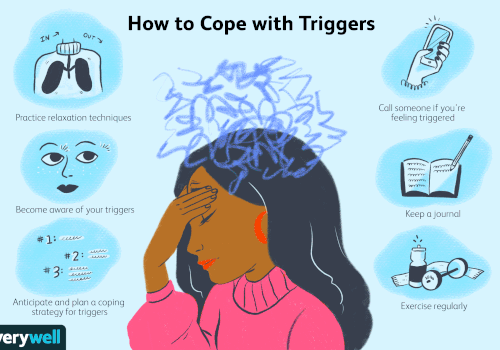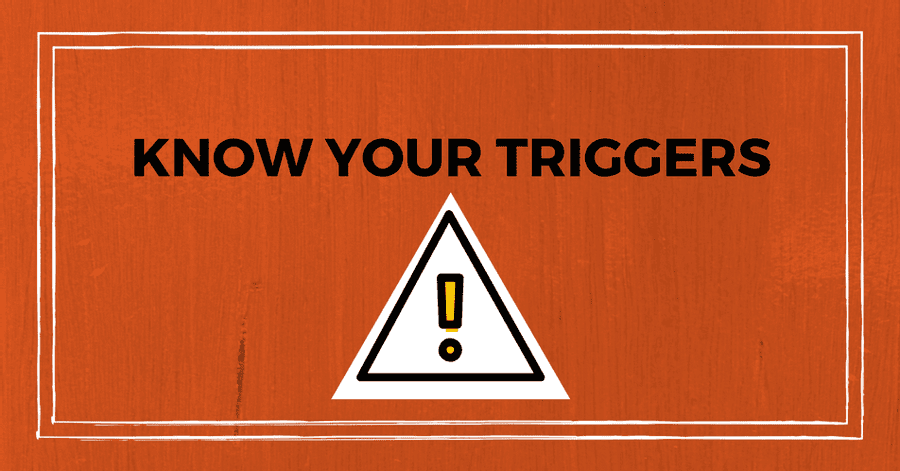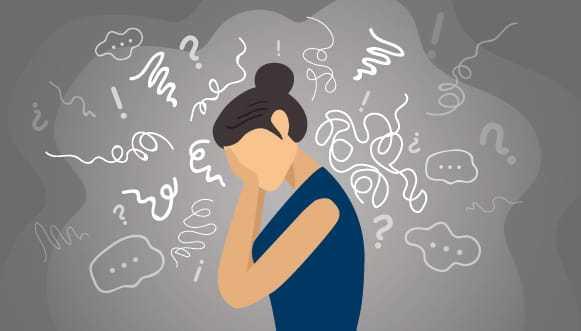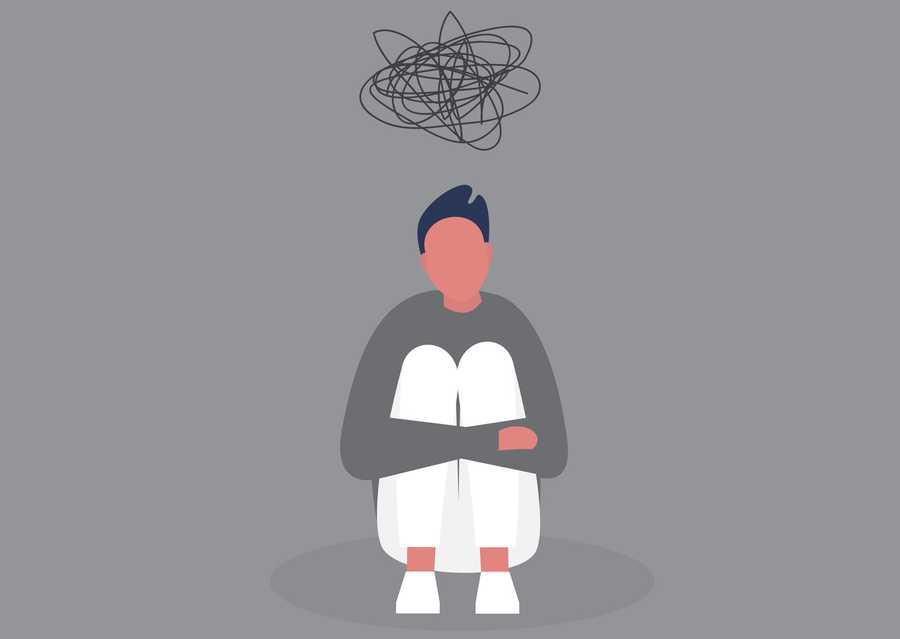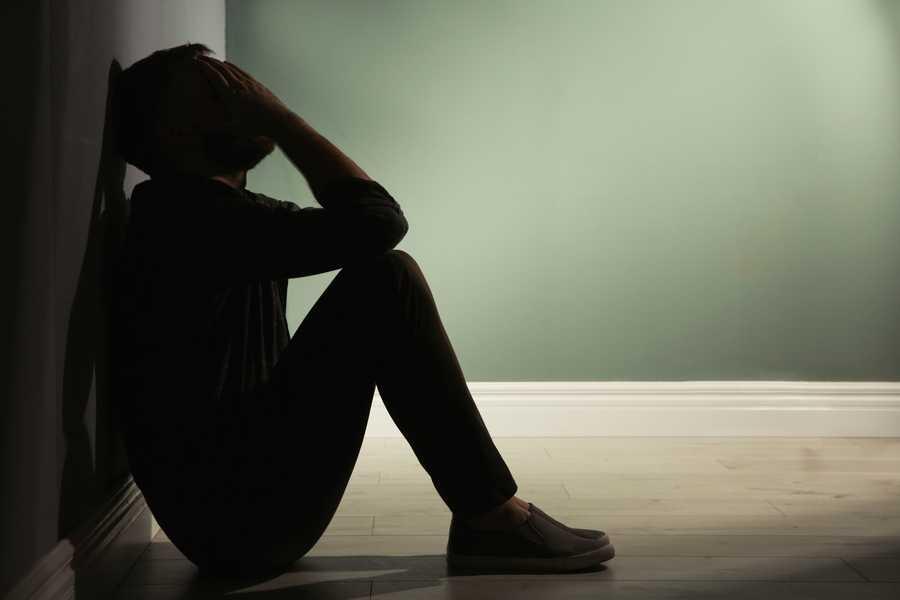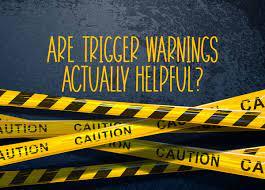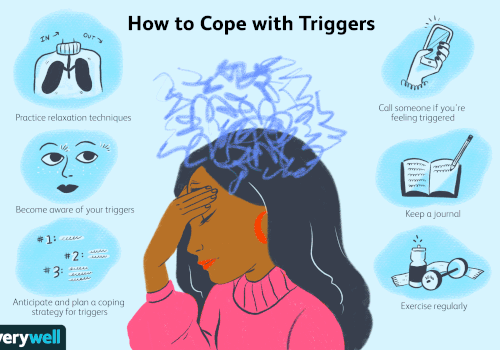Explore the World's Best Ideas
Join today and uncover 100+ curated journeys from 50+ topics. Unlock access to our mobile app with extensive features.
Triggers
What does it mean to be "triggered" This term has been casually used to refer to the experience of having an emotional reaction to some type of disturbing content (such as violence or the mention of suicide) in the media or in another social setting. However, there is a difference between being triggered and being uncomfortable.
Feeling triggered isn't just about something rubbing you the wrong way. For someone with a history of trauma, being around anything that reminds them of a traumatic experience (also known as a "trigger") can make them feel like they're experiencing the trauma all over again.
19
56 reads
Internal triggers
An internal trigger comes from within the person. It can be a memory, a physical sensation, or an emotion.
Types of internal triggers:
- Anger
- Anxiety
- Feeling overwhelmed, vulnerable, abandoned, or out of control
- Loneliness
- Muscle tension
- Memories tied to a traumatic event
- Pain
- Sadness
18
32 reads
External triggers
External triggers come form the environment, They can be a person, place, or a specific sitation.
common things that may cause a person to feel triggered:
- A movie, television show, or news article that reminds you of the experience
- A person connected to the experience
- Arguing with a friend, spouse, or partner
- A specific time of day
- Certain sounds that remind you of the experience (a military veteran might be triggered by loud noises that sound like gunfire)
- Changes to relationships or ending a relationship
- Significant dates (such as holidays or anniversaries)
- Going to a specific location that reminds them of the experience
- Smells associated with the experience, such as smoke
Think of the impact that a situaion such as the coronavirus pandemic may have obn those struggeling with mental illness.
16
12 reads
How triggers are formed
We don't know precisely how triggers are formed. Some researchers believe that our brains store memories from a traumatic event differently from memories of non-traumatic event.
Past traumatic events may be interperted by the brain as current. This causes the body to experience symptoms similar to the original trauma (such a the fight and flight response).
We also know that triggers can cause an emotional reaction before a person realizes why they have become upset. Often triggers have a strong sensory connection (a sight, sound, taste, or smell), or are connected in some way to a deeply ingrained habit (for example, a recovering alcoholic who associates a particular activity with drinking).
Some refer to this as "traumatic coupling," where a trigger is connected to a traumatic experience, causing you to relive symptoms.
17
17 reads
Are triggers warnings helpful?
There has been some debate as to whether trigger warnings are helphul or harmful.
- Advantages: Those who argue in favor of trigger warnings state that they give people a chance to prepare themselves for the trigger. Given that triggers tend to be more distressing if they come as a surprise, this could be viewed as helping those with PTSD and other mental health issues to feel safe.
- Disadvantages: At the same time, others argue that trigger warnings can reinforce avoidence behaviours and that avoiding triggers only serves to maintain the symptoms of PTSD in the long-term. Instead, emotions that arise from triggers should be appropriately dealt with in therapy, particularly if they interfere with daily life.
16
19 reads
How to cope with triggers
Sometimes, it is reasonable to try and avoid triggering sitations However, if avoiding possible triggers hinders your ability to function, you should seek help.
Learning to cope with triggers you can't anticipate or avoid requires emotional processing, which is most often aided by therapy. The following are a few effective, healthy coping strategies for lessening the impact of triggers:
- Calling on you social support
- Deep breathing
- Exercise
- Expressive writing
- Keep a journal
- Mindfulness meditation
Empower yourself by preparing to cope with triggers. Become aware of signs in your body that you're reacting to a trigger, such as changes in your breathing so that you can learn how to calm yourself down and shift your emotional state.
Your ultimate goal should be to detach yourself from the trigger, re-center, and focus on your coping strategy.
17
13 reads
IDEAS CURATED BY
I'm passionate about helping people live their best lives. I'm a lifestyle coach & burnout coach.
Rogier. H's ideas are part of this journey:
Learn more about psychology with this collection
Understanding the importance of decision-making
Identifying biases that affect decision-making
Analyzing the potential outcomes of a decision
Related collections
Similar ideas
9 ideas
Post-Traumatic Stress Disorder (PTSD)
healthline.com
1 idea
3 ideas
What Is Posttraumatic Stress Disorder?
google.com
Read & Learn
20x Faster
without
deepstash
with
deepstash
with
deepstash
Personalized microlearning
—
100+ Learning Journeys
—
Access to 200,000+ ideas
—
Access to the mobile app
—
Unlimited idea saving
—
—
Unlimited history
—
—
Unlimited listening to ideas
—
—
Downloading & offline access
—
—
Supercharge your mind with one idea per day
Enter your email and spend 1 minute every day to learn something new.
I agree to receive email updates
